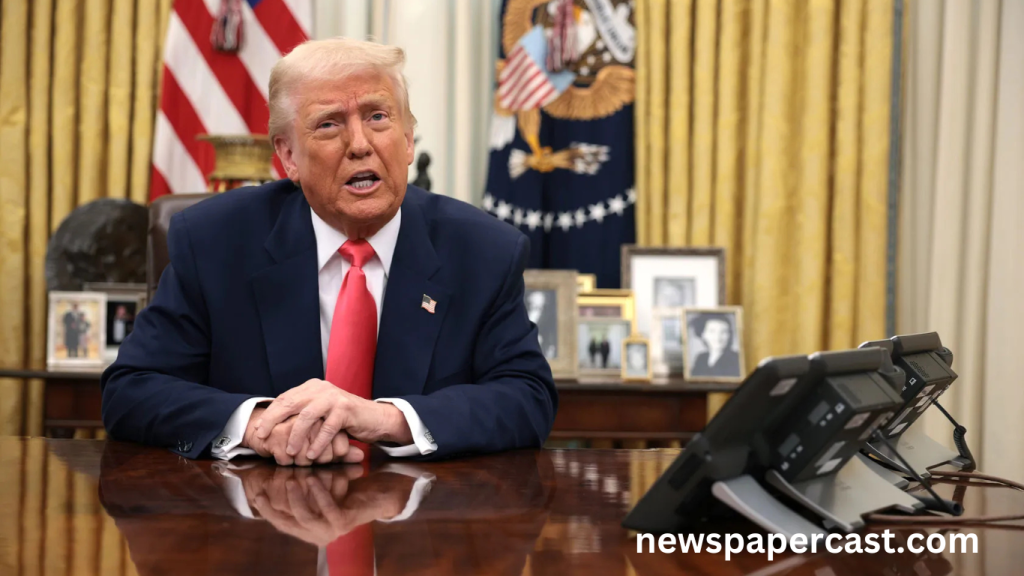Recent actions taken by former President Donald Trump have stirred conversations across financial and political landscapes. The U.S. economy, known for its resilience, now faces renewed uncertainty. Trump’s influence remains strong, and his decisions continue to send ripples through markets and institutions that value predictability.
Investor Confidence Wavers
Markets thrive on stability and consistency. Trump’s controversial proposals and comments often create waves of unpredictability. Investors, both domestic and international metatrader 4, respond quickly to shifts in leadership tone and policy direction. With each bold statement, uncertainty grows.
Trade Policies Under Scrutiny
Global trade plays a critical role in sustaining the American economy. Trump’s previous stances on tariffs and trade agreements resurfacing in political discourse raise red flags for businesses reliant on international supply chains. A potential return to protectionist strategies could reverse years of economic integration.
Federal Institutions Facing Pressure
The strength of the U.S. economy rests not only on private sector innovation but also on the stability of federal institutions. If future leadership threatens the independence of key entities like the Federal Reserve, market dynamics may be thrown off balance. Decisions perceived as politically motivated rather than economically sound can disturb financial planning.
Workforce and Industry Uncertainty
Business leaders across sectors require clarity to make hiring, expansion, and investment decisions. Political rhetoric that shifts unpredictably puts long-term strategies on hold. Manufacturing, tech, and agriculture—pillars of the U.S. economy—need assurance that policy won’t change direction overnight.
Global Allies Rethinking Partnerships
America’s economic strength also depends on its position as a trusted global partner. Trump’s earlier term saw strained relations with traditional allies. If such tensions re-emerge, collaborative agreements in trade, defense, and technology could be jeopardized, impacting long-term growth.
Economic Growth Hinges on Trust
Trust is the invisible currency of economic health. The perception of leadership—whether stable or chaotic—affects everything from consumer spending to foreign investment. Trump’s political maneuvers, often unpredictable, could shake the very trust that underpins the nation’s economic engine.
Frequently Asked Questions
What specific move by Trump is causing concern?
His renewed stance on protectionist trade policies and pressure on independent federal institutions are causing widespread concern.
How does this affect average Americans?
Uncertainty in markets can lead to job insecurity, inflation, and disruptions in key industries like agriculture and manufacturing.
Could this impact small businesses?
Yes, small businesses often rely on predictable policy and stable supply chains, both of which may be at risk.
Is the stock market reacting?
Markets have shown signs of volatility as investors respond to potential policy shifts and political unpredictability.
What are experts saying about economic stability?
Economists warn that undermining trust in institutions or trade can slow down growth and weaken recovery momentum.
Could this lead to inflation or recession?
Rapid policy changes could destabilize the economy, possibly increasing inflation or pushing growth into negative territory.
How are global markets responding?
International markets remain cautious, watching closely how U.S. political shifts may influence global trade and partnerships.
Is this concern temporary or long-term?
That depends on future political decisions and whether policy stabilizes or continues to swing unpredictably.
Conclusion
Economic strength rests on consistency, trust, and global cooperation. Trump’s unpredictable moves risk shaking the foundations that support American prosperity. Businesses need stability, markets crave clarity, and global partners expect reliability. When leadership choices create uncertainty, every sector—from Wall Street to Main Street—feels the effect. The future of the economy depends on careful policy, not just bold rhetoric. Eyes remain on the decisions that shape tomorrow’s financial landscape.

